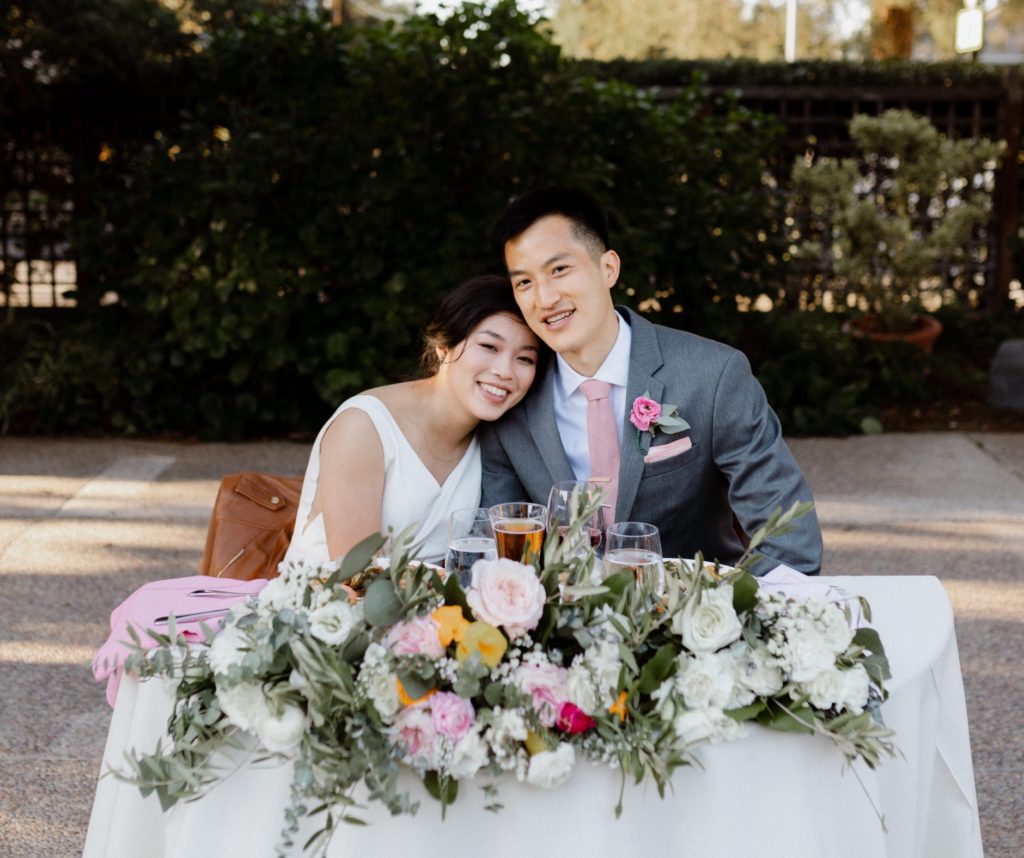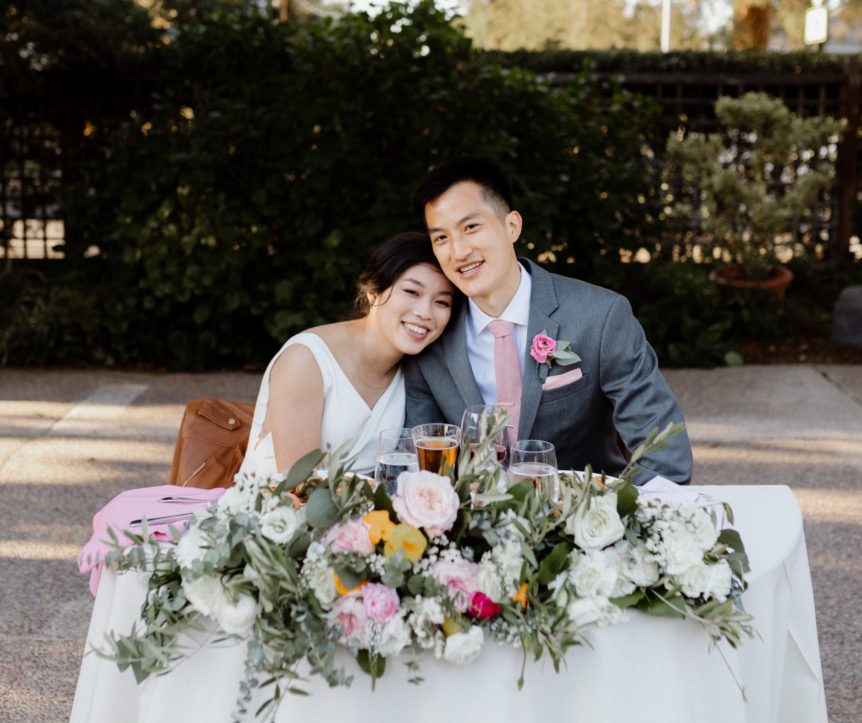This is a guest post written by Andrew Lee, who just got married this past year. I (Tim) met Andrew in Zoom because he reached out after reading our blog. We instantly connected and it’s been fun giving him feedback on his writing. Andrew is an Asian American based in the San Francisco area, a developer at Dayspring Partners, and graduated with a computer science major from Stanford.
Marriage is a gift. Marriage is also difficult and full of never-ending challenges. But always, marriage is a journey.
Whether you are unmarried and looking ahead, a newlywed like me, or someone who has been married 7 years or even 10 years, join me in the journey of the things that I am learning in my 0th year of marriage.

Love Your Spouse The Way They Want To Be Loved
This lesson rings true even before marriage. You might have heard the phrase, “treat others the way you want to be treated.” But I disagree. What I think we should really strive for is to “treat others the way they want to be treated.”
In marriage, love languages will differ. My wife and I are very different people, and we’ve learned that we have very different needs. For example, when I am upset, I feel cared for when someone asks me questions in an attempt to understand what I am thinking. When my wife is upset, she needs someone who will listen silently and affirm her emotions, not someone who is questioning her for her thoughts. If I were to treat my wife the way I wanted to be treated, I would totally be missing her—in fact, the very thing I thought would be loving would actually be driving her crazy!
We first discovered this as an engaged couple getting together to debrief a conflict or misunderstanding. Because I felt seen and acknowledged when someone took the time to try and understand my thoughts, my natural first attempt at loving my wife was doing what I would have wanted done to me! I tried hard to ask a lot of questions, not knowing I was actually making things worse. You see, my wife feels loved when someone listens to her in silence, when her emotions are accepted and validated without a need to explain herself.
We were both getting frustrated. The last thing she wanted was a million questions from me. And I felt like she wasn’t engaging by asking me questions back. It wasn’t until later that I realized my wife was acting in the way she assumed would be loving in reverse, by listening and accepting anything that I wanted to express, but not necessarily prompting for more.
If we are not conscious about it, we will default to expressing love in the way that makes sense for us, but may not actually be loving for the other person. In order to make our marriage grow, we needed to discover and patiently learn the way the other person wanted to be loved. This is true in any relationship. Love people the way they want to be loved, and not necessarily the way you want to love them.

Make Sex A Priority
Marriage is a journey… and so is sex with a committed spouse.
I recently wrote a blog post describing some of the things about sex we wished the church emphasized to us more growing up. Sex is difficult and challenging. Sex takes a lot of work and conscious effort, especially in the beginning. Sex can be fraught with varying amounts of insecurity, fear, or plain miscommunication.
My wife and I realized that if we wanted to grow in our ability to connect through sex, we would have to make sex a priority.
After all, the issues you work through in sex are often issues reflected in the wider relationship! Communication is one such example. If one person has trouble being direct about their needs, they will probably have trouble voicing this during sex as well. If one person is feeling particularly unloved in one aspect of the relationship, they might project that onto the ways they feel loved or unloved when having sex. Frustrations arise from unspoken expectations, inside or outside of the bedroom.
And then there’s the fear of not being fulfilling enough to your partner. Am I good enough to deserve their love back? Is there something that is wrong with me? Insecurities that show up in sex may be part of a larger fear in the relationship. There are many things outside of just the physical act that need to be communicated well in sex.
It is important to prioritize sex because it takes set-aside space, time, energy to learn how to be intimate. And focusing on some of the issues in sex has a way of helping with the health of the entire relationship as well!

Make Fighting A Priority, Too
“I am angry and upset.”
“What you said really frustrated me.”
“I don’t feel heard or understood.”
As much as sex is important to marriage, fighting is perhaps an even more important part of marriage. As Tim and Olive describe so aptly in their first book, people are either woodpeckers or turtles when it comes to their argumentative style within a relationship. Woodpeckers are ready to engage right away and peck away, while turtles are more shy about conflict and tend to hide away in their shell.
Because both my wife and I are turtles, fighting well becomes an even bigger priority for us because expressing our anger or sadness is often hard for us to do. (I am an Enneagram Type 9, which means I tend to be conflict-averse and overemphasize the need for harmony). But healthy marriages and relationships should always involve conflict.
Fighting is an important way to express emotion. We’ve been learning that anger is not a bad emotion. Anger is actually a very helpful emotion. Expressing your anger is a defense mechanism against the build-up resentment. It is much easier to deal with smaller, lower-stakes situations than it is to deal with an explosion of pent-up rage. Learning to express anger healthily requires both empathy for your partner as well as self-awareness for what you need in the moment.
Fighting helps you notice your own feelings of anger. When I get angry, I recognize it as a helpful sign for me to slow down and consider what it is that is bothering me. When I’m able to fight and express my anger healthily, it is a tool in helping my partner take note of what upset me and why. The aftermath and purpose of a fight should always be to try and understand each other better.
The more my wife and I communicate our anger, the healthier we are at fighting. The healthier we are at fighting, the healthier we are at resolving conflict and learning to love each other more.
Never Underestimate the Power of Positive Affirmation
I’ve been learning and re-learning that the way you think about your spouse matters a lot.
My wife and I got engaged in the middle of the COVID-19 pandemic. Planning a wedding was stressful, and there were a lot of unknowns and anxieties. But one of the things our pastor observed to me in our premarital counseling was:
“Andrew, you’re trying hard to be aware of your fiancée’s fears and anxieties and loving her in that, but you sometimes overcompensate for what you think your fiancée is feeling. When I talk to her it’s not always as bad as you make it seem.”
My wife later confirmed it:
“Andrew, sometimes I feel like you associate me only with my fears and insecurities, which isn’t a good feeling.”
That single comment has stuck with me ever since.
Tim Keller writes about the power that each spouse has in shaping the other in marriage: “If all the world says you are ugly, but your spouse says you are beautiful, you feel beautiful.” But conversely, “if all the world says you are beautiful, but your spouse says you are ugly, then you feel ugly.”
I realized that the more I focused on my wife’s fears in some of our conversations, the more my wife felt herself being associated with these negative traits. And no one wants to feel that way! I saw how important it was to talk about and see my wife in terms of positive traits, especially when talking to others.
How you think about your partner has huge consequences. Words of affirmation, delivered genuinely and consistently, can totally shift someone’s view of themselves. I’ve been realizing that positive affirmation always has 10x more potential to change someone’s behavior than criticism. Galatians 6:7 says “A man reaps what he sows” and 2 Corinthians 9:6 reminds us “Whoever sows sparingly will also reap sparingly, and whoever sows generously will also reap generously.” When you sow love and affirmation in a relationship, whether verbally or internally in your mind, that is what you will eventually reap.
Marriage is, indeed, a gift. A beautiful, messy, hard, sometimes frustrating gift :) If you want to follow the thoughts of someone in their 0th year of marriage, or interested in the intersection of Asian American identity and Christianity, you can be updated on new posts here.
